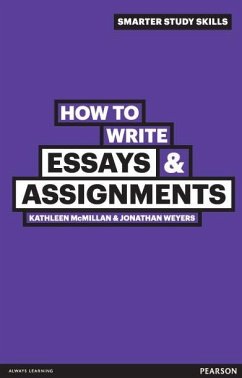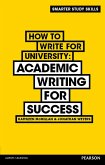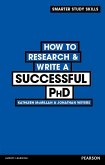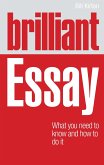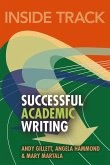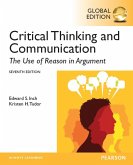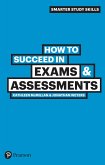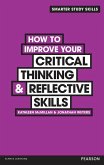Fully updated since publication in 2007, and with extended and revised sections in key areas such as plagiarism & Copyright, and Citing & Referencing,
How to write Essays & Assignments will allow a student to assess and address their particular weaknesses in planning and writing great academic essays and delivers detailed tips, techniques and strategies to enable them to significantly improve their abilities and performance in time to make a difference.
Dieser Download kann aus rechtlichen Gründen nur mit Rechnungsadresse in A, B, BG, CY, CZ, D, DK, EW, E, FIN, F, GR, HR, H, IRL, I, LT, L, LR, M, NL, PL, P, R, S, SLO, SK ausgeliefert werden.
Hinweis: Dieser Artikel kann nur an eine deutsche Lieferadresse ausgeliefert werden.

